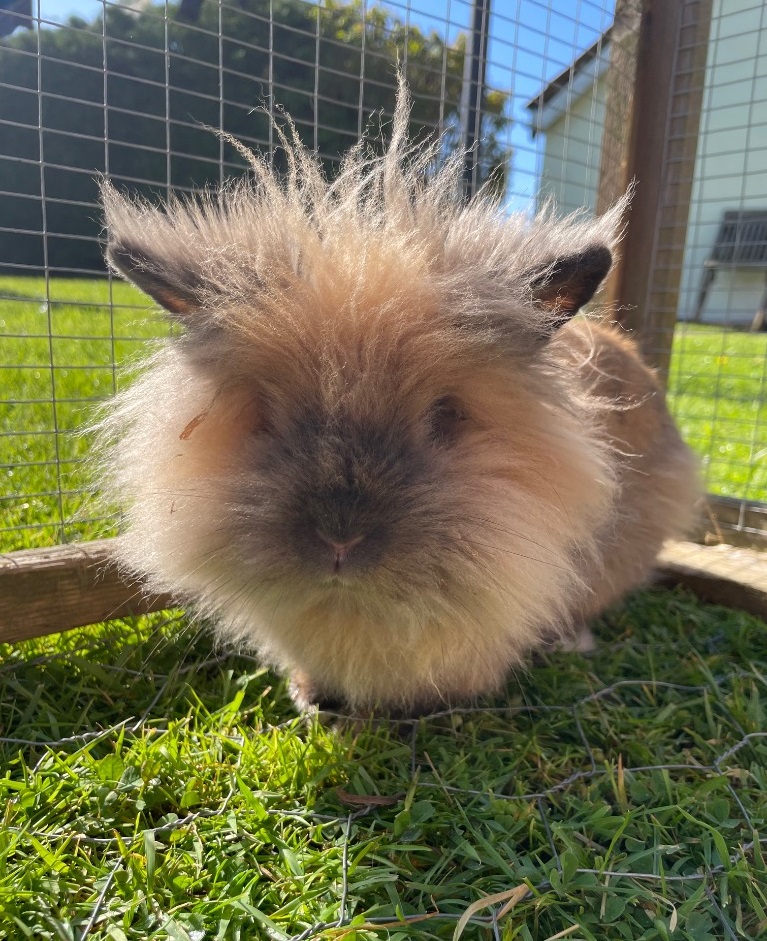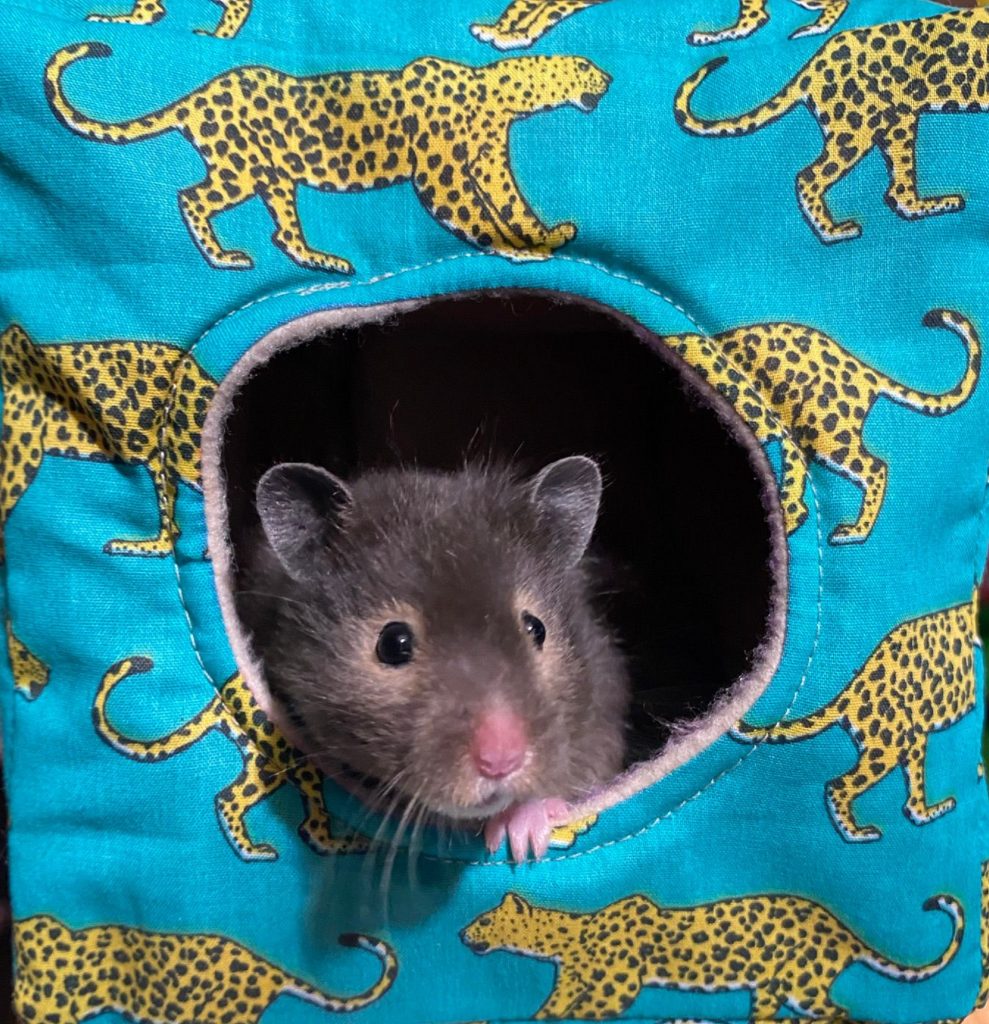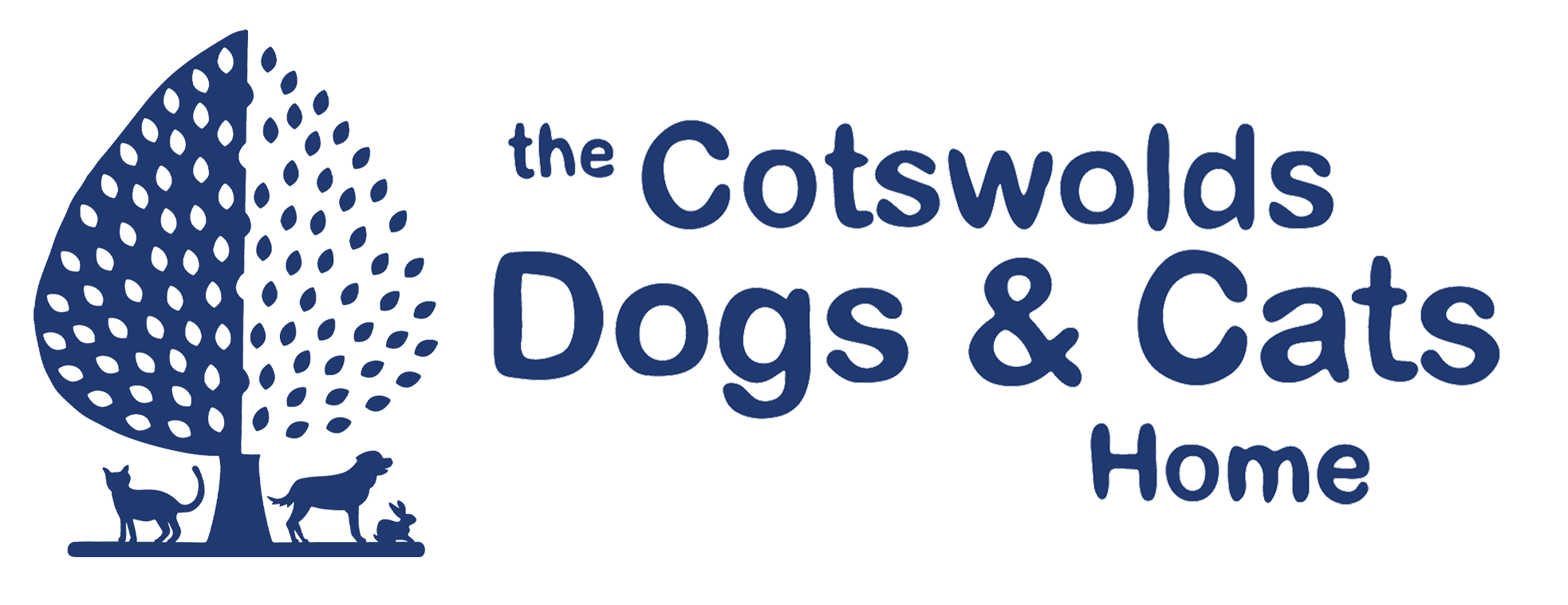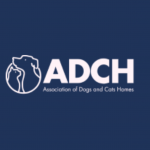
Are you wanting to open your space (and heart) to a rescue animal of the smaller kind? If so then look no further than being a small furries foster parent.

Why foster a Small Furry?
Here at CDCH we don’t have the on-site facilities to house and care for any small furry animals in need of our help. We fully rely on the support and commitment of loving and dedicated foster carers, who are kind enough to offer space and time to care for their daily needs. Our fosterers give us the ability to offer spaces to smaller vulnerable creatures that come our way, such as rabbits, guinea pigs and hamsters.
What fostering a Small Furry means to you:
- Providing a safe environment and looking after the animal for the duration of their stay with CDCH (either short term or long term)
- Taking care of their day-to-day needs (feeding etc, keeping their living area clean, socialising them and taking care of specific grooming requirements)
- Caring for their basic medical and behavioural needs (this will always be discussed prior to placement, and a foster agreement set)
- Taking them to and from vet appointments – either at the centre or our local vets in Dursley.
- Being flexible and accommodating viewings with potential adopters (the times will be pre-booked with you and only with potential adopters who have passed our checks)
There’s no need to worry about cost when you foster with us – we cover all your foster animal’s expenses.
What we are looking for
What
we are
looking
for
we are
looking
for
- Experience in handling and caring for the foster species
- An open mind in regards to the animal you accept in to your home. Although we ensure you are matched to the correct species (temperaments and breeds may differ).
- Homes in close proximity to the centre (ideally within a 30 minutes’ drive) with suitable transport to attend appointments (public transport will not be considered suitable).
- Flexibility – we are looking for foster homes who are happy to work with us during the animals foster journey, which may require visits to the centre during week day hours as well as weekends.
- Suitable accommodation in place, which meets the specific requirements of the species (we are happy to work with you to adapt this and make it work), or the space to allow us to provide one.
- Someone to be around at regular intervals throughout the day – this will be case-by-case for small furries, as some may be able to be left for up to 8 hours.
- A willingness to learn and follow The Cotswolds Dogs & Cats Home policies and procedures

The Benefits of fostering to you
- The knowledge you are playing a huge role in helping an animal in need
- The enjoyment of having a pet without the long term and financial commitments – the animal will remain the responsibility of CDCH for the duration.
- You get to join a great team of like-minded people – we would consider you part of the CDCH community.
- All medical, food and equipment costs can be covered and provided by us.
- On-going support from the CDCH Team.
Fostering FAQ
When we use the term ‘Small furry’, we are referring to the smaller species groups who come through our care. Here are CDCH, this would be Rabbits, Guinea Pigs, Hamsters, Rats, Gerbils and Mice.
We welcome foster homes who wish to care for and love their foster animals as if they were their own, however, as they will remain the responsibility of CDCH, there will be expectations in place.
With all foster animals, you will have discussed a foster agreement and guidelines prior to taking them home, which would outline the expectations we ask you to adhere to. This may differ for each animal you take on; however, we always ask that you continue the care plan we give, rather than introduce your own.
Depending on the animal’s behaviours and needs, it may mean that exposing them certain situations, such as changes to the environment or new people may not be suitable without the guidance of our behaviour team.
Once you have been set up as a fosterer, we always ask you to keep an open mind and look beyond breed preferences and stereotypes. Due to the nature of fostering a small furry, we expect a fosterer to be open to caring for the animal suitable to their space without the need to meet them in person.
As we are unable to house any small species at the centre, we will arrange a suitable date with the foster carer for their transition in to their temporary home. We ask the foster carer to collect the animal from the centre the same day, where we will ensure you leave with all the appropriate supplies.
All small furries species have very different environmental, social and dietary needs, which will be discussed and supplied by CDCH prior to you taking a foster pet home.
Accommodation sizing and guidelines differ for each species, therefore, although suitable housing and equipment will all be supplied by CDCH, we would require any foster home to be able to provide the appropriate space for this.
We will discuss the minimum size requirements for each foster species.
We consider both indoor or outdoor set-ups for the foster of our small furries, so long as they are safe and meet our accommodation standards and requirements.
Each animal will be placed in the most appropriate home to suit their needs.
Although we will always consider the application and set up on a case-by-case basis, we can be more restricted by having existing pets in the home, which will not always be suitable.
All small furries will need to be kept separate from other small species – not only is this to avoid injury, but also to prevent transfer of infections & diseases, as well as the potential to reproduce. Due to this, anyone with existing small pets will need to have a separate space where the animal can be adequately housed and isolated.
For foster rabbits, any existing rabbits in the home must be fully vaccinated – proof of this will be requested.
If we do place a foster animal in the home with other species such as cats or dogs, then we would expect them to be kept separately and for appropriate measures to be in place to ensure their safety at all times.
We understand that most foster carers will likely have their own commitments and may not always be available, which is why we carry out our initial checks and take them in to consideration before placing an animal with you.
As travelling and moving environments can be quite a stressful experience for our smaller creatures, once a foster has been agreed, we would hope that you would be able to care for them for the full length of foster, unless you have a long-term agreement, in which case we fully understand you would require a break.
We are aware that plans can change unexpectedly, therefore ask that any holidays/trips are communicated to us at your earliest convenience. In some short-term cases, we may consider allowing assistance from a trusted friend or family member following some initial checks, however, a foster animal must always be cared for from the home address of the registered fosterer.
It can be very difficult to make unforeseeable arrangements for our small animals, as we rely solely on the space provided by our other fosterers, therefore it’s important to let us know of your plans ahead of time. If you are the spontaneous type and like to take frequent trips away, then we would suggest that fostering may not be suitable for you.
We will keep you updated with any news in regards to your foster animals’ journey, giving as much notice as possible about any possible new movements, such as if they are being made available for adoption or returning to an existing owner (Case or Pet Retreat).
We fully understand that saying goodbye to your foster animal can be difficult, no matter how long they have been in your care, so firstly we thank you for helping them on their journey – if you would like any support following your foster animal leaving, then do get in touch with CDCH.
We hope that although saying goodbye can be sad, you’ll be able to open your home and heart again, to another small animal who needs some extra help.

To report cruelty or an animal in distress call 0300 1234 999
Registered Charity number : 1207042
Copyright © 2022. All rights reserved. Cotswolds Dogs & Cats Home





